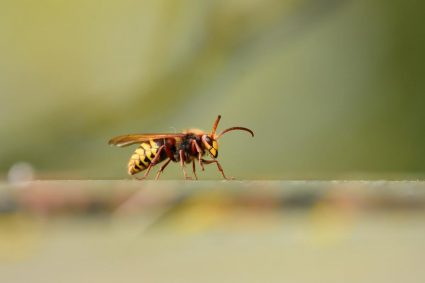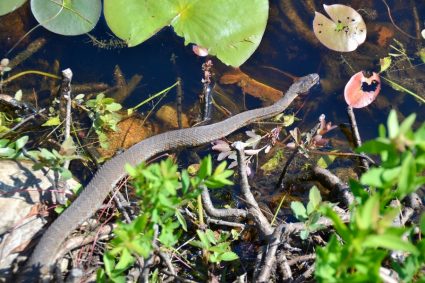
In every gardener’s life, there comes a time when they must face off against some form of wildlife. For many, the opponent is a small, stripe-tailed creature known as the chipmunk. While they may look cute and harmless, chipmunks can cause significant damage to your flower beds, digging up bulbs, nibbling on plants, and creating a general mess. In this article, we will discuss how to keep chipmunks out of your flower beds using various methods, from natural repellents to physical barriers and more.
To keep chipmunks out of your flower beds, consider using natural repellents such as mint, marigolds, and daffodils, or homemade repellents from cayenne pepper, garlic, or essential oils. You can also install a fence made of hardware cloth around your flower beds, use ultrasonic devices, or commercial repellents. Maintaining a clean yard devoid of hiding spots can also deter chipmunks.
Recognizing the Signs of Chipmunks
Before we delve into the solutions, it’s important to recognize the signs that chipmunks are living in your yard. Some common signs include:
- High-pitched chirping noises
- Burrow holes typically measuring 2-3 inches wide
- Tracks and scat
- Uprooted bulbs and damaged plants
- Piles or caches of seeds and grains
Natural Repellents
One of the best ways to deter chipmunks from your flower beds is by planting natural repellents. Some plants are known to repel chipmunks due to their strong scents or toxic properties. These include:
- Mint
- Alliums
- Marigolds
- Stonecrops and Sedum
- Thyme and Sage
- Bee Balm (Monarda)
- Catmint
- Hyssop
- Lavender
- Daffodils
- Yarrow
- Common Camas
- Black-eyed Susan
- Lupine
- Purple Coneflower
Using Hardware Cloth or Fencing
Another effective method is installing a fence made of ¼ inch hardware cloth around your flower beds. The fence should be buried at least 6 inches deep and extend at least 2 feet above ground level to prevent chipmunks from digging under or jumping over it.
Homemade Repellents
You can also use homemade repellents made from cayenne pepper, garlic, or essential oils like peppermint, lemon, and eucalyptus. These deterrents can be sprinkled or sprayed around your flower beds to keep chipmunks at bay.
Ultrasonic Devices
Ultrasonic devices are a humane way of keeping chipmunks away from your garden. These devices emit high-frequency sounds that are unpleasant for chipmunks, which can deter them from nesting or feeding in your flower beds.
Maintaining a Clean Yard
Clutter and overgrown vegetation can provide hiding spots and food sources for chipmunks. By maintaining a clean yard and removing potential hiding places like tall grass and leaf piles, you can make your garden less appealing to chipmunks.
Commercial Repellents
There are also commercial products available that can help keep chipmunks out of your flower beds. These include repellents like Plantskydd Granular Animal Repellent, Apello Solar Chipmunk Repellent, and Bonide Chipmunk, Squirrel & Rodent Repellent.
Conclusion
Keeping chipmunks out of your flower beds is a task that requires a combination of methods and regular monitoring. By using natural repellents, physical barriers, homemade solutions, and commercial products, you can protect your garden from these small but potentially destructive creatures. Remember, the key to success is being proactive, observant, and adaptable to keep your flower beds chipmunk-free.
Frequently Asked Questions
How often should I apply homemade repellents?
Homemade repellents like cayenne pepper, garlic, or essential oil mixtures should be applied once a week and after every rainfall. Rain can wash away these repellents, reducing their effectiveness.
Can ultrasonic devices affect other animals or pets?
Ultrasonic devices typically have a range of frequencies they can emit. Some of these frequencies can be heard by dogs, cats, and birds. However, most commercially available ultrasonic devices are designed to be safe and non-irritating for domestic pets and other wildlife. It’s always best to check the product specifications before purchase.
Are commercial repellents harmful to the chipmunks or other animals?
Most commercial repellents are designed to be humane and simply deter chipmunks rather than harm them. They usually work by emitting smells that chipmunks find unpleasant. However, it’s important to always read the product labels and use as directed to ensure safety for all wildlife.
How long will it take to see results after implementing these methods?
The time it takes to see results can vary depending on the severity of your chipmunk problem and the methods you’re using. You might start to see a decrease in chipmunk activity in your garden within a few days to a week of implementing these strategies.
Will planting repellent plants alone keep the chipmunks away?
While repellent plants can help deter chipmunks, they are usually more effective when used in combination with other methods like fencing, homemade or commercial repellents, and maintaining a clean yard. Chipmunks are persistent creatures and may still try to get into your garden, even with repellent plants.










